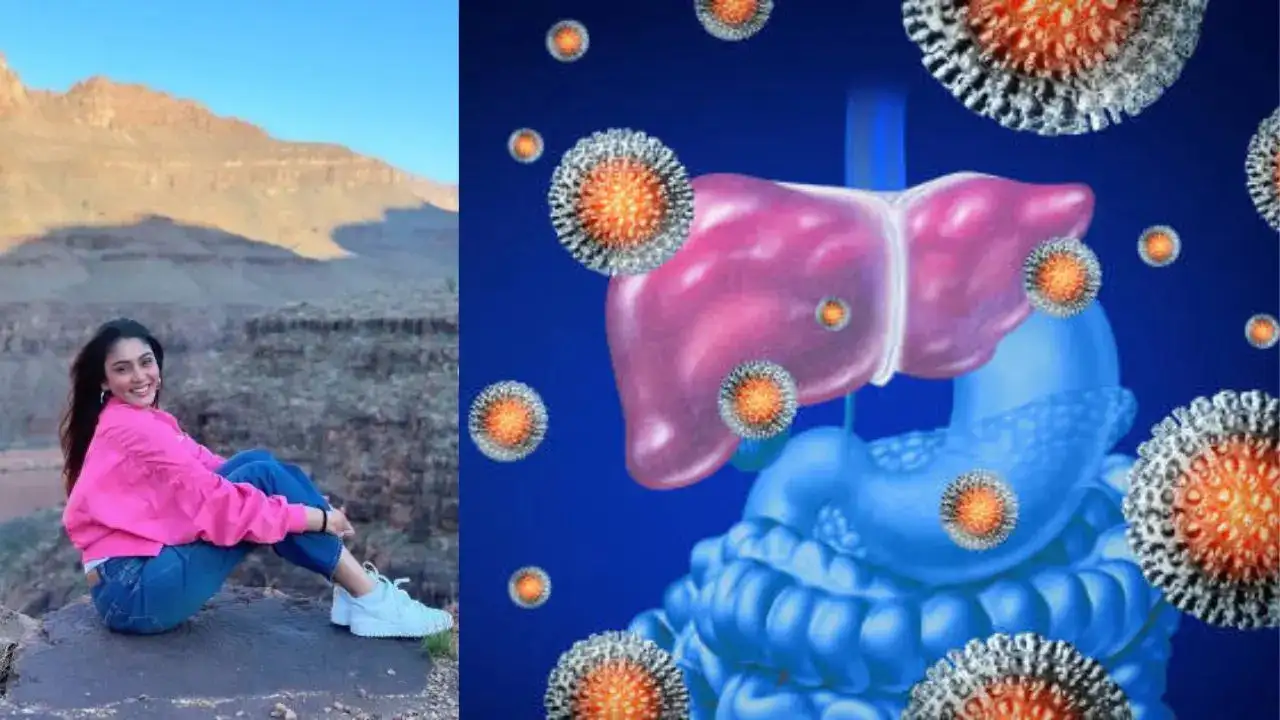
Sana has also been on constant medication for it and has even adopted a vegan lifestyle to manage her healthPic: Instagram/iStock)
Bigg Boss OTT 3 winner Sana Makbul has been hospitalised after battling a grave condition, according to doctors. Sana, who previously opened up about her struggles with liver disease and an immunity disorder – similar to what actor Samantha Ruth Prabhu has – looked frail in a picture of her on a hospital bed, posted by her friend.
Earlier this year, Sana revealed she has been dealing with autoimmune hepatitis – a chronic liver disease where your body's immune system mistakenly attacks liver cells, leading to inflammation and damage. Doctors say it is a long-term condition that causes dangerous complications like cirrhosis, liver failure, and potentially liver cancer.
Sana has also been on constant medication for it and has even adopted a vegan lifestyle to manage her health. “I take steroids, suppressants, and some medicines. It’s a lifestyle disorder, but with the autoimmune condition, the liver condition is a tricky thing. My health keeps fluctuating; I don’t know if this can be cured completely,” she said in an earlier interview.
What is autoimmune hepatitis?
According to experts, Sana's condition is complex, with symptoms sometimes resembling lupus that affect her kidneys or lead to arthritis.
Autoimmune hepatitis begins with a mistake in your immune system, which sends antibodies to your liver tissues, causing inflammation. Doctors say these antibodies normally attack infections in your liver tissues, but in the case of autoimmune diseases, your immune system mistakenly attacks your healthy cells. According to experts, medical treatment can help reduce inflammation and prevent complications from developing. However, in the early stages of the disease, you may not have symptoms.
It is unco and its exact prevalence is unknown, as it appears to affect all racial and ethnic groups, but research has found it is more common among Alaska Natives, affecting about .043 per cent of that population. The condition is also more common in women, by a ratio of 4:1.
Signs and symptoms of autoimmune hepatitis
Not everyone may have symptoms of autoimmune hepatitis, as sometimes they develop later. However, after the disease has begun to affect your liver function, it causes many side effects, like:
- Abdominal pain or discomfort
- Swelling in the abdomen and enlarged liver
-
Fatigue and tiredness
- Joint pain
- Skin rashes
- Acne
When your liver function begins to deteriorate, bile can build up in your bloodstream. This can cause:
- Jaundice
- Dark-coloured pee or pale-coloured poop
- Puritius
- Nausea and loss of appetite
- Enlarged veins in your esophagus
- Easy bruising and bleeding
- Loss of menstrual periods
- Fluid build-up in your abdomen
- Confusion, disorientation or drowsiness
How do you get autoimmune hepatitis?
According to experts, it is a complicated condition that may have multiple factors involved. In many cases, a few genes appear to make you more susceptible to developing certain autoimmune disorders. However, not everyone with those genes develops the disease, and not everyone who develops it has those genes.
Other, nongenetic factors, called “environmental” factors, also contribute.
Environmental factors are toxins or events that stress your immune system. In certain susceptible individuals, these factors may trigger an overactive immune response that manifests as a chronic autoimmune disease. Triggers linked to autoimmune hepatitis include certain drugs and certain viral infections.
